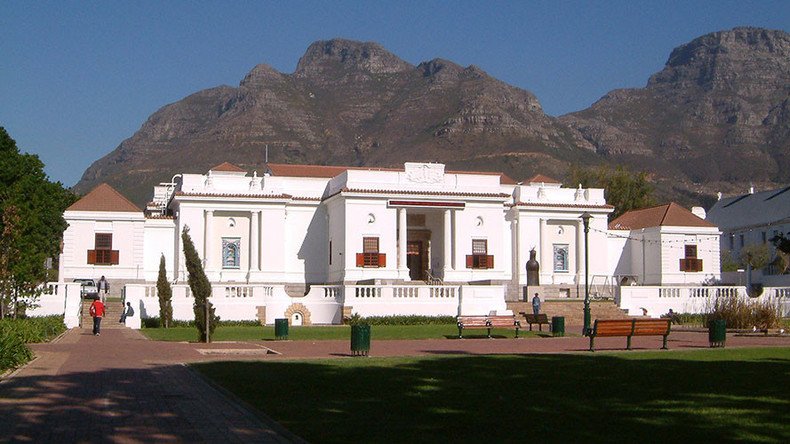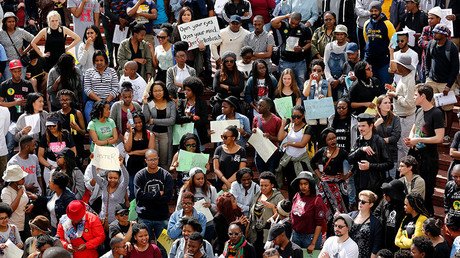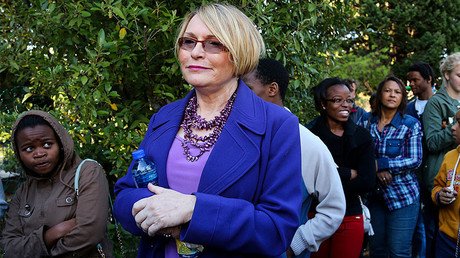‘F*ck White People’ art not racist, rules South Africa magistrate

A Cape Town magistrate’s court has ruled that an art poster with the words F*ck White People scrawled all over it is not racist or that it amounts hate speech since it seeks to address the problems caused by a white-dominated society.
The poster, covered in the words F*ck White People, all in capital letters, along with a chair and a pair of golden shoes, is on display at the Iziko South African National Gallery as part of “The Art of Disruptions” exhibit.
The artist behind the poster, Dean Hutton, a student at the University of Cape Town, is white.
Predictably, the artwork has proven controversial. Earlier this year, activists from the Cape Party, a political formation seeking independence for the Western Cape province, covered up the poster with a banner, saying, "Love thy Neighbour".
The Cape Party also filed a lawsuit against the Iziko Gallery, claiming it was tantamount to hate speech and incited racism under the Promotion of Equality and Prevention of Unfair Discrimination Act. It sought 150,000 rand ($11,190) in damages, a restraining order against any more such works and an apology from the gallery.
But at the Equality Court in Cape Town Tuesday, Magistrate Daniel Thulare ruled the piece was protest art against the social power structures in South African society rather than white people as such.
“For reasons I have already given, in my understanding of Hutton, I am unable to find that what they said amounts to advocacy of hatred of [and] for White South Africans based on their race, which hatred constitutes incitement to cause harm,” the Mail and Guardian quoted Thulare as saying in his ruling.
The ruling was welcomed by Iziko's lawyer‚ Jeremy Klerck.
"This is a landmark decision,” the Times reported. “It came to the defense of freedom of speech. And it came to the defense of artistic expression."
As expected, the Cape Party had a different reaction.
"It is beyond belief that such a simple and obviously offensive statement could be so misinterpreted and condoned in a court of law," party leader Jack Miller said in a statement quoted by the Times.
“Today‚ 'F*ck White People' is art. Where is this country going?"
“What we must strive for is complete dismantling of the systems of power that keep white people racist”, the Mail and Guardian reported Hutton as saying. The art student added that while some white people may be offended by the poster, they should “Learn to f*ck the white in you, too”.
Hutton pointed out that Zama Mthunzi, a black student at the University of Witwatersrand, was threatened with expulsion after wearing a shirt with F*ck White People written on the back.
“None of the complainants [against Mthunzi] said anything about the front of the T-shirt which read, ‘Being Black is Sh*t,’” Hutton said in a statement.
“But I can do it – that is white privilege.”
For much of the 20th century, South Africa was ruled under a system of Apartheid, or white supremacist rule which oppressed and excluded its black and Asian citizens from many aspects of everyday life.
Apartheid officially ended in 1991 and since then, the country has portrayed itself as a rainbow nation. But it has also struggled at times to keep a peaceful balance between its black majority, its white descendants of European settlers, as well as immigrants from elsewhere in Africa and other minorities.














